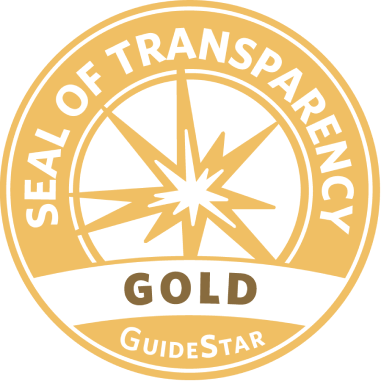Trauma can leave lasting scars on individuals, but its impact often extends beyond the person who experiences it. For mothers, the effects of trauma are particularly significant because they influence not only their well-being but also the emotional and psychological development of their children. A mother’s ability to cope with trauma is crucial to fostering a safe and nurturing environment for the next generation.
At the Omid Foundation, we work with women who have experienced trauma, helping them heal and build the skills they need to support their children. This article explores the importance of trauma management for mothers, strategies to promote healing, and how breaking the cycle of trauma can empower future generations.
The Intergenerational Impact of Trauma
Trauma can have profound and far-reaching consequences, especially for mothers and their children. When trauma is left unaddressed, its effects often ripple through families and communities in the following ways:
Emotional Dysregulation: Trauma can lead to anxiety, depression, or anger, making it difficult for mothers to manage emotions and respond to their children with patience.
Attachment Challenges: Unresolved trauma may affect a mother’s ability to form secure bonds with her children, impacting the child’s emotional security.
Behavioral Patterns: Trauma can perpetuate cycles of abuse, neglect, or dysfunctional coping mechanisms within families.
However, addressing trauma through proper management and support can transform these challenges into opportunities for growth and resilience.
Why Trauma Management is Crucial for Mothers
For mothers, managing trauma is not just about personal healing; it is about creating an environment where their children can thrive. Key reasons why trauma management is vital include:
- Breaking Cycles: Healing from trauma allows mothers to break generational cycles of pain and dysfunction, paving the way for healthier family dynamics.
- Role Modeling: A mother’s resilience and coping skills serve as a powerful example for her children, teaching them how to handle adversity.
- Nurturing Relationships: Trauma management helps mothers form secure attachments with their children, fostering trust, communication, and emotional safety.
Strategies for Trauma Management
Trauma management for mothers involves a combination of self-care, professional support, and intentional parenting practices. Below are key strategies to help mothers address trauma and support their children.
- Seek Professional Help
Therapy is one of the most effective ways for mothers to process and heal from trauma. Professional support can help mothers gain insight into their experiences, develop coping strategies, and rebuild their self-esteem.
Therapeutic Options:
Trauma-Focused Cognitive Behavioral Therapy (TF-CBT): Helps mothers process traumatic events and reframe negative thought patterns.
Group Therapy: Provides a sense of community and shared understanding, reducing feelings of isolation.
Family Therapy: Addresses dynamics between mothers and children to promote healthier relationships.
At the Omid Foundation, we connect mothers with skilled therapists who specialize in trauma recovery, offering them the tools they need to heal.
- Practice Self-Care
Self-care is essential for mothers navigating trauma. Taking time to care for their physical, emotional, and mental well-being allows mothers to show up more fully for themselves and their children.
Self-Care Tips:
Set aside time for activities that bring joy, such as reading, art, or spending time in nature.
Prioritize rest and establish a consistent sleep routine.
Practice mindfulness techniques, such as deep breathing or meditation, to reduce stress.
By modeling self-care, mothers also teach their children the importance of prioritizing their own well-being.
- Build a Support System
Trauma can often lead to isolation, but building a support system is vital for healing. Trusted friends, family members, or community groups can provide emotional reassurance and practical assistance.
How to Build Support:
Join local or online support groups for mothers or trauma survivors.
Seek out organizations like the Omid Foundation that provide holistic resources for women and families.
Foster open communication with trusted loved ones to share feelings and experiences.
A strong support network helps mothers feel less alone and more empowered to face challenges.
- Learn About Trauma and Its Effects
Understanding trauma is an important step in managing it. Mothers who educate themselves about the effects of trauma can better recognize their triggers, patterns, and coping mechanisms.
Educational Resources:
Books, articles, and podcasts on trauma and recovery.
Workshops or seminars on parenting and trauma.
Professional guidance from counselors or social workers.
The more informed mothers are, the better equipped they are to manage their trauma and support their children.
- Foster Positive Parent-Child Relationships
A strong, supportive relationship between mothers and their children is a cornerstone of trauma recovery. Nurturing these bonds can help both mothers and children heal.
Tips for Building Connection:
Spend quality time together through play, reading, or shared activities.
Validate children’s emotions and encourage open communication.
Practice patience and self-compassion when challenges arise.
At the Omid Foundation, we emphasize the importance of secure attachments, teaching mothers how to cultivate trust and emotional safety with their children.
- Set Boundaries and Prioritize Safety
Mothers who have experienced trauma may struggle with setting boundaries, particularly if their trauma involved violations of trust. Learning to establish and maintain healthy boundaries is essential for personal healing and family well-being.
Steps to Set Boundaries:
Clearly communicate limits to others, whether they involve time, energy, or emotional availability.
Teach children the importance of respecting boundaries, both their own and others’.
Remove toxic influences or relationships that undermine safety or well-being.
Boundaries empower mothers to reclaim control over their lives and create a stable environment for their children.
The Role of Community and Organizations
Trauma recovery is not a solitary journey. Communities and organizations play a critical role in supporting mothers as they navigate their healing process.
At the Omid Foundation, we provide:
Safe Spaces: Environments where mothers feel secure, supported, and understood.
Educational Programs: Workshops on parenting, trauma management, and emotional resilience.
Peer Support Groups: Opportunities for mothers to connect with others who share similar experiences.
Our holistic approach ensures that mothers have access to the resources they need to heal and empower their families.
Breaking the Cycle: Empowering Future Generations
When mothers address their trauma and develop healthy coping mechanisms, they create a ripple effect that benefits future generations. Children raised in stable, supportive environments are more likely to develop resilience, empathy, and emotional intelligence.
Key Outcomes of Trauma Management:
Improved Emotional Health: Both mothers and children experience reduced anxiety, depression, and behavioral issues.
Stronger Relationships: Families build trust, communication, and mutual respect.
Intergenerational Healing: By breaking cycles of trauma, mothers set the stage for healthier futures for their children and communities.
Moving Forward
Trauma is a heavy burden, but it is not insurmountable. With the right tools, support, and determination, mothers can navigate the challenges of trauma and emerge stronger than before. By prioritizing their healing, they not only transform their own lives but also create a brighter, more hopeful future for their children.
At the Omid Foundation, we are committed to supporting mothers on this journey, offering them the resources, community, and compassion they need to succeed. Together, we can break the cycle of trauma, one family at a time.
In healing mothers, we empower the next generation to thrive.

